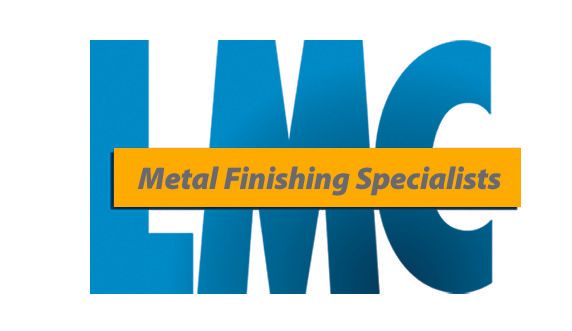FAQ
Anodizing
-
What is anodizing?
Anodizing is an electrochemical process using an acid electrolyte bath and electrical currents that convert the metal surface into a durable, corrosion-resistant, anodic oxide finish.
-
What is the purpose of anodizing?
Anodizing increases corrosion resistance, and the structure of the coating allows for coloring, improved lubrication, or improved adhesion.
-
What alloys are best for anodizing?
The most popular alloys used for anodizing are 2000, 5000, 6000, and 7000 series alloys. These alloys will provide consistently excellent quality finishes for hard coat and conventional anodizing.
-
What alloys are best for bright finishes?
The brightness degree depends on the alloy type and the surface finish. Hard-tempered alloys produce higher lusters. Aluminum alloys most suitable for bright finishes are 2000, 5357, 5457, 5557, 7016, and 7029. The higher purity alloys are highly recommended.
-
What are the benefits of anodized aluminum?
There are several benefits to anodizing aluminum, all of which are very important. Durability, aesthetics, reduced possibility of fading, corrosion resistance, and abrasion resistance decrease the risk of adhesive failure.
-
Why would I choose rack over bulk anodize?
Although bulk anodizing is very beneficial, it’s best utilized when simultaneously anodizing hundreds or thousands of smaller parts. With racking, it allows for careful handling and precise anodizing of the alloy with a low risk of fall out, voids, or other quality issues.
-
How do you hard coat aluminum?
Hard coat is applied by using a suitable electrolyte, typically sulfuric acid cooled to nearly freezing, and applied voltages upwards of 100 volts at an applied current density of 24-36 amps per square foot.
-
Does anodized aluminum wear off?
Anodizing provides a thin aluminum oxide layer, which will deteriorate over time. Depending on the thickness and quality of the coating – and the environment that the part is exposed to – the surface could last 10-20 years.
-
How much does it cost to anodize aluminum?
Every component being anodized is done so at different costs. Tooling, process, and equipment are considered when pricing each material job.
-
What anodizing specifications do you provide?
At LMC, we provide several specifications depending on customer requests. Mil-spec coatings are the most widely used and performed at LMC. We also offer specialized certifications for military and aerospace applications. (Examples: Nadcap, QAP testing, and product exact process control.)
Manganese Phosphating
-
What is manganese phosphate coating?
Manganese phosphate is a type of conversion coating. This coating is produced by subjecting the part to a chemical process that changes the surface of the part. When applied to a steel part, it creates a heavy crystalline finish on the surface. This coating is insoluble, meaning that it can’t be dissolved by another material, thus increasing the part’s strength and wear resistance.
-
What is manganese phosphate typically used for?
This coating primarily services automotive, defense and weapons, and marine equipment.
-
What are the benefits of manganese phosphating?
Benefits include maximum hardness, increased corrosion resistance, improved lubrication, and excellent adhesion.
-
What is the difference between zinc phosphate and manganese phosphate coatings?
Zinc phosphate is primarily used for paint pretreatment, and manganese phosphate for oil coating (great for storage protection, lubricity, and wear resistance).
General Questions
-
How does LMC guarantee consistent quality?
Our chemistry is kept at proper and precise levels to ensure each step of the process yields the same results all day, every day. Our operators are well-trained and seasoned in every process to ensure positive and consistent results from beginning to end.
-
Are LMC’s metal finishing services environmentally friendly?
Yes, LMC takes very precautionary measures to ensure environmental safety for everyone inside and outside the building.
-
Does LMC offer custom metal finishing solutions?
LMC is well-rounded in custom metal finishing. With so many different styles of tooling, there’s almost nothing we can’t anodize.
Company Questions
-
How many companies work with LMC?
Over 100 companies.
-
What is LMC’s mission statement?
To provide people the tools and inspiration to live and work to their greatest potential, to do great things for themselves and others.
-
Who founded LMC?
Light Metals Coloring is a privately owned company founded by David Yard in 1945 (Watertown, CT) giving the distinction of being one of the first anodizers in the US.
-
What is LMC's biggest milestone?
LMC has been in business for over 75 years.
-
Where do you source the materials for your products and services?
North America, Europe, and Mexico.
-
What are some reasons why your customers should trust your brand over others?
We provide a full range of skills needed to direct and deliver a successful manufacturing solution, assisting in your strategic direction, procurement planning, system design, security assessment, application development, and systems integration. We have developed a comprehensive, proven methodology based on thousands of transactions in a wide range of industries requiring metal finishing solutions. Our company offers more than 75 years of experience in helping over 100 customers improve their procurement processes and is continuously recognized for adding value to their finished products.
Contact Us
We will get back to you as soon as possible.
Please try again later.
